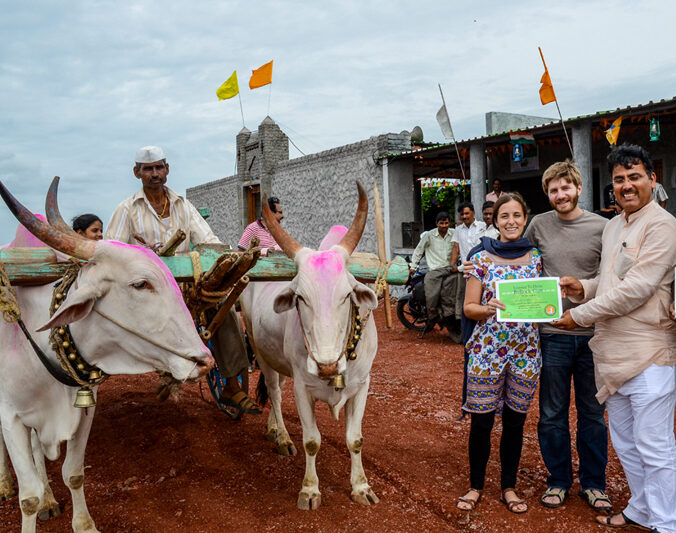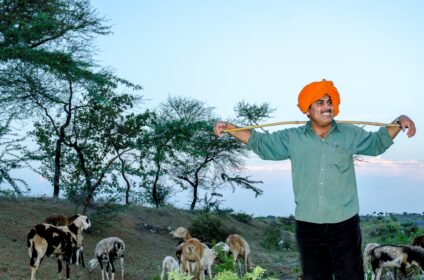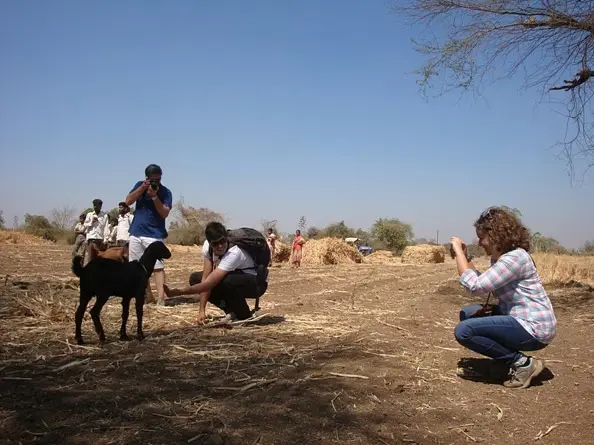About Agritourism India

Agri Tourism India (ATDC) is moving beyond traditional approaches of Tourism by introducing Agriculture Tourism to villagers. Commencing in 2005, in rural Maharashtra, ATDC approach has rapidly spread over the last few years to encompass more than 200 villages, attracting the attention of Farmers and Tourism practitioners in the Country.Beginning with the first trip at Baramati Agri Tourism Trust and thereby expanding it to Agri Tourism Centre in Palshiwadi Village and other 700 centres, it was able to attract 80 Lacs tourists including 5 lakh Foreign guests from around 20 countries. These 700 farmers in Maharashtra were given training and consultancy to start the activity of Agri Tourism on their farms. This boosted their morale to provide better and efficient services to the tourists while naturally putting in extra efforts to increase farm productivity.
At every centre, there has been a motto to maintain an agriculture farm along with ancillary activities. The dairy, poultry and horticulture farms can be seen in certain centres while kite flying, bullock cart ride, tractor ride, temple visit, sugar cane, cashew and other factory visit, local museums, bird watching, experiencing traditional wear, ethnic food, pottery making, harvesting, tilling the soil, playing rural games, knowledge about the crops in the field, organic farming, living in huts and rural style architecture, open to sky beds at night, purchasing farm fresh vegetables and fruits directly from the farmers, purchase of local artisans’ handmade items like bullock carts and Godhadi, night and early morning trail on the hill or local village, bonfire, traditional display of folk songs and art are some of the itinerary points at different centres.
With the advent of this concept, there has been a win-win situation for India, the tourists and the farmers. The tourists enjoy the serene beauty of nature amidst the farmer’s land, they experience the true Indian culture called Agriculture and they can live an entire day like a farmer which helps them understand the toils and hardships in farming as well as the in-depth knowledge the farmer possesses. This eventually builds respect and awe for the farmers in the minds of the tourists and they may begin to use the farm produce and other basic necessities like water judiciously after seeing the vulnerable condition due to lack of these resources. As they can purchase the farm fresh organic produce, they are convinced about the genuineness of the healthy, non-adulterated products best suited for their families. The farmer, on the other hand, benefits due to non-farm source income generation, learns hospitality to make the tourists on his farm feel comfortable. Steady improvement in hygiene conditions can be observed as the farmer cleans his home, tourist huts and his farm to attract more guests. The indulgence of the intermediary agents to sell the farmer’s produce in the market gets eliminated in a considerable manner. Due to this, the farmer’s self-confidence is regained as he can sell directly to the guests at the true cost of this effort and the produce effectively. India, as a whole, witnesses increase in the foreign flow of income in the economy and our Agrarian culture will no longer be depicted as leading to mass poverty in the eyes of the foreign nationals. The primary sector shall join hands with the tertiary one to enhance our GDP and thus shall India consequently move towards being a Developed Nation gradually.
Over the next five years ATDC shall broaden its base to include centres throughout India and serve as an umbrella organisation for all such centres. The facilities provided at each centre shall undergo a positive change and guidance/training programmes shall be implemented with thorough diligence. The primary sector shall be viewed as one employing the most and simultaneously contributing the most which shall thereby change our perspective towards our farmer brothers.


With the only objective of proving the farmers as our Indian assets and thereby bringing a satisfactory smile on every farmer’s face, ATDC, along with the support of the guests and wellwishers, would continue towards its journey of maintaining



